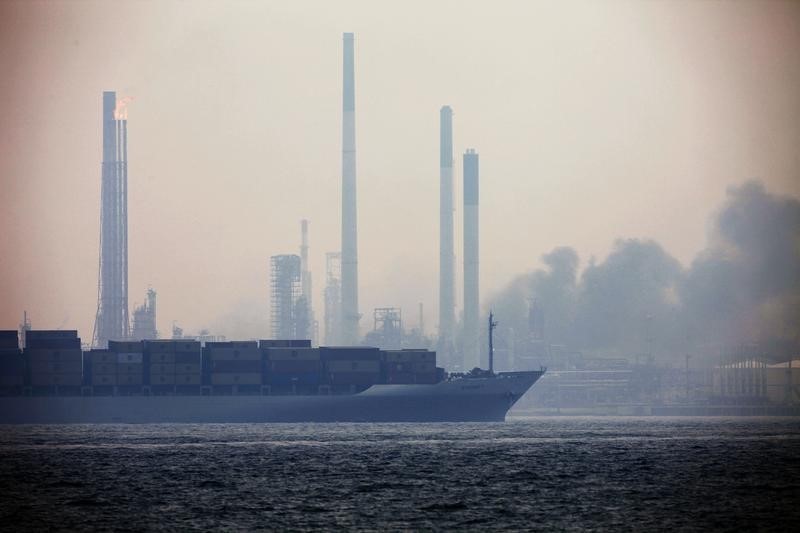By Florence Tan
SINGAPORE (Reuters) - Oil fell more than 1 percent on Wednesday as the dollar strengthened, while an industry report showing a larger-than-expected rise in U.S. crude inventories also dragged on prices.
Crude futures settled up more than 2 percent on Tuesday when the dollar index posted its biggest fall since early October amid soft U.S. data that cast doubts about the underlying optimism on the outlook for the world's biggest economy. [USD/]
"The key driver for oil prices in the last few days has been currency fluctuations ... we had seen some weakness in the U.S. dollar which helped support prices overnight," Ric Spooner, chief analyst at CMC Markets in Sydney said.
"Oil eased a little bit in the Asian time zone, possibly reflecting the fact that the dollar is a little bit stronger."
Brent crude hit a low of $48.79 a barrel and was down 45 cents at $49.15 by 0717 GMT. U.S. crude was at $45.68 a barrel, down 55 cents, after earlier hitting $45.33.
Brent has traded in a $48-$50 range in the past week, pushed either way by currency changes amid a lack of fundamental news to drive prices. Investors are now looking ahead to official U.S. inventory data due later on Wednesday for trading cues.
The American Petroleum Institute said late on Tuesday that U.S. crude inventories rose 12.7 million barrels last week, triple the volume expected. [API/S] [EIA/S]
"The overall expectation is that global supply is outstripping demand at the moment and so unless we see some really substantial changes to inventory numbers, oil prices are probably not going to move too much," Spooner said, adding that Brent is supported at $47.60 a barrel in the short term.
A persistent global supply glut has already dragged down oil prices by around 60 percent since June last year, prompting analysts to cut forecasts for the next two years.
Barclays and Credit Suisse slashed their 2015 forecasts for Brent to $44 and $58 a barrel, respectively, citing weak fundamentals.
"We assume that OPEC will maintain its position, non-OPEC supply growth will stay firmly in positive territory, and oil consumption will be slow to respond to lower prices," Barclays analysts said in a note.

"The drive to encourage storage will also likely drag down the price of oil in the first half of 2015."